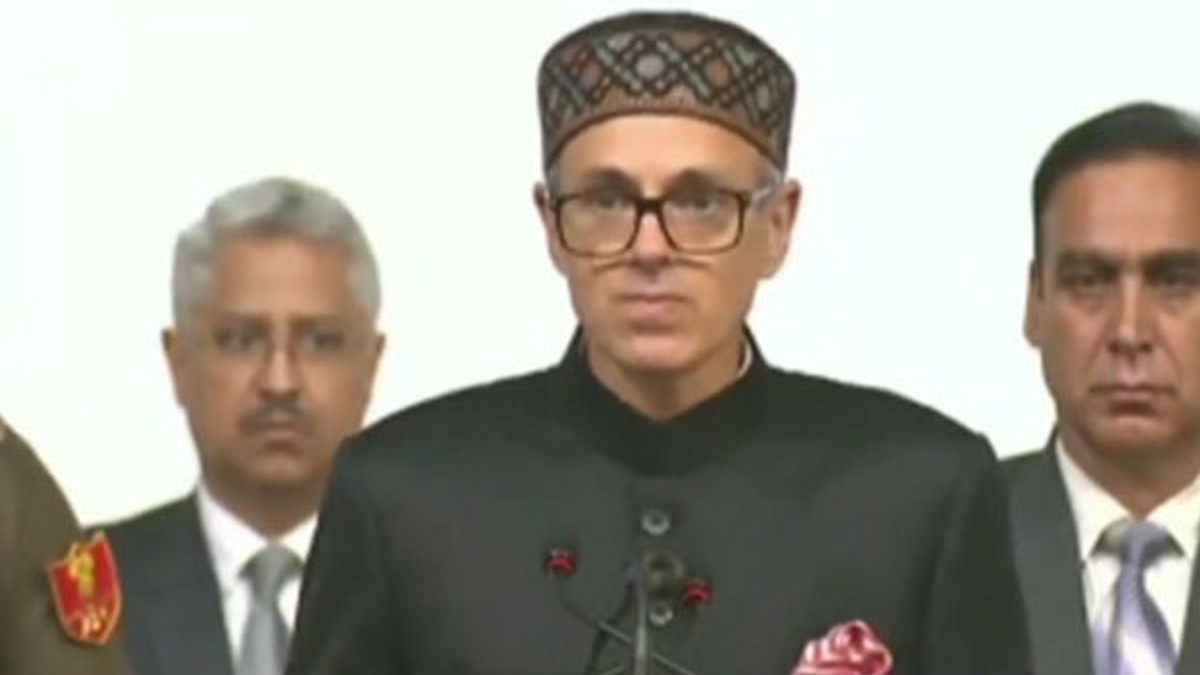Seven people have been left dead in a terror attack in Jammu and Kashmir.
The attackers hit a tunnel construction site on the Srinagar-Leh National Highway on Sunday – leaving a doctor and six labourers dead.
They terrorists attacked when the labourers and other staff working on the tunnel project at Gund had returned to their camp late in the evening.
They said the terrorists – believed to be at least two – opened indiscriminate fire on the group of labourers that included both locals and non-locals.
Pakistan-based terror outfit The Resistance Front (TRF) hast taken responsibility for the attack, according to several media reports.
However, the incident has caused controversy after Jammu and Kashmir Chief Minister Omar Abdullah referred to the incident as a ‘militant attack’.
But what did Abdullah say exactly? And what is the difference between the two?
Let’s take a closer look:
What did Abdullah say?
Abdullah, who was sworn in as the first Chief Minister of the Union Territory since the Centre revoked Article 370 in 2019, called it a militant attack.
“Very sad news of a dastardly & cowardly attack on non-local labourers at Gagangir in Sonamarg region. These people were working on a key infrastructure project in the area. 2 have been killed & 2-3 more have been injured in this militant attack. I strongly condemn this attack on unarmed innocent people & send my condolences to their loved ones,” Abdullah wrote on the social media platform X.
“The casualty figure from the Gagangir attack is not final as there are a number of injured labourers, both local & non-local. Praying that the injured make a full recovery as the more seriously injured are being referred to SKIMS, Srinagar,” he added.
Former chief minister Mehbooba Mufti also did not use the words “terror attack.”
“Unequivocally condemn this senseless act of violence against two labourers in Ganderbal. Deepest condolences to their families,” she wrote on X.
Some people on social media then took Abdullah to task for his choice of words.
But what is the difference between the two?
Militant vs terrorist
According to Outlook, the two terms are often used interchangeably.
However, these terms are viewed differently particularly when it comes to dealing with a place like Jammu and Kashmir.
The press in Kashmir would for years call those battling the Indian state “militants.”
Militants here refers to those taking aim at the state and its officials – for example the cops and the armed forces
Terrorism, on the other hand, is generally defined as creating terror in the hearts and minds of the public. Terrorists single out civilians and attack public locations
Terrorism does not have a universally accepted definition but broadly refers to the targeting of civilians for the fulfilment of their objectives. They target civilian lives and infrastructure for the state’s attention and to put pressure on them.
Targeting religious minorities is thus viewed as an act of terror.
However, targeting armed forces is viewed as a militant attack – for example in Pulwama or Uri.
IDSA.in quoted Adil Rasheed , a Research Fellow at the Manohar Parrikar Institute for Defence Studies and Analyses, as that the two terms should not be used interchangeably.
“Although there may not be consensus over a common definition, there is a great deal of consensus over the conceptual and essential constituents of the term.”
Rasheed quoted The Unlawful Activities (Prevention) Act (UAPA), 1967, as calling a terrorist, “Whoever does any act with intent to threaten or likely to threaten the unity, integrity, security, [economic security,] or sovereignty of India or with intent to strike terror or likely to strike terror in the people or any section of the people in India or in any foreign country”.
He quoted John Philip Jenkins as writing in Encyclopaedia Britannica that terrorism is “the calculated use of violence to create a general climate of fear in a population and thereby to bring about a particular political objective.”
The FBI, meanwhile, calls terrorism “violent, criminal acts committed by individuals and/or groups to further ideological goals stemming from influences, such as those of a political, religious, social, racial, or environmental nature.”
Rasheed wrote that ‘militant’ is a broader term used to label individuals who use violence to achieve a political or social outcome.
This is regardless of whether the violence aims to create a climate of terror or fear in the general public or its enemies in order to achieve its political goals.
With inputs from agencies
)